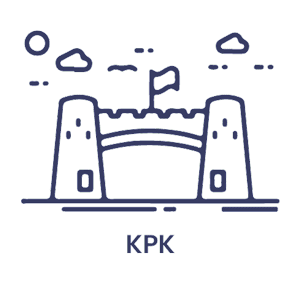The purpose of the examination and assessment policy is to ensure the planning and management of examinations and assessment is conducted efficiently and in the best interest of learners by providing clear guidelines for all teachers, administrative staff and learners. It is the responsibility of everyone involved in the examination and assessment processes at TMS to read, understand and implement this policy.
TME Examination and Assessment Policy
Introduction
Aim of the Policy
- To provide guidance to teachers and school administration on the collection, analysis and interpretation of information in order to report on the progress of learners
- To illustrate the ways that assessment at TMS should provide evidence of learner performance according to the curriculum learning outcomes
- To support assessment as a means for providing feedback to learners in order to support their learning
- To describe the different forms of assessment such as tests and examinations, projects, oral presentations, performances, investigations, practical work and creative writing that can be used to accommodate different learning style
Assessment: Principles and Practice
At TMS we recognise that teaching and learning, and assessment of learners’ learning, are interdependent. Learning outcomes, which include knowledge and understanding of a subject as well as learners’ cognitive, personal and academic skills, should be explicitly stated for each unit of a course, and these should be the centrepoint around which the whole course is developed and assessed.
Principles
In this light, we believe that the following objectives underpin our assessments:
- Assessment monitors the progress of learner learning and achievement through a course of learning
- Assessment produces clear and easy-to-understand feedback for learners, parents, teachers and school management
- It informs curriculum and assessment review
To realise these objectives, we further recognise that learners:
- Have differing learning styles
- Have different learning experiences, expectations and needs
- Perform differently according to the context of learning
- Need to know their achievements and areas for improvement in the learning process
- Should receive feedback that is positive and constructive
Throughout learners’ progress through the curriculum and the teaching of the curriculum, assessment should therefore:
- Provide, as far as is practical, a wide variety of different assessment opportunities and to be relevant and motivating to learners
- Use learning objectives and outcomes
- Be made clear to learners by teachers before assessments begin
- Measure what learners understand, what they can do and what they know
- Be both formative (to assist learners in building understanding, skills and knowledge) and summative (to assess learners’ acquired understanding, skills and knowledge)
- Be on-going and support learners’ reflection on what has been learned and how it has been learned (metacognition)
- Allow learners to evaluate their progress and be involved in setting targets for their improvement
- Allow the school to evaluate the measure of success in meeting specific learning objectives as defined by the curriculum
- Be focused on evaluation of a broad range of concepts, attitudes, understandings and skills
- Be appropriate to an international and increasingly complex world
In light of these statements, the following principles apply to all assessments at TMS:
Principle 1
Assessment and feedback are integral to supporting effective learner learning. Therefore, assessment should be used to guide learning and provides a key tool for judging performance and the level of learner attainment, both to the learner through formative assessment and feedback and to the school and parents through summative assessment. It is essential, therefore, that well thought-out assessment and feedback is a significant tool for influencing learner learning through guiding a learner’s study practices and rewarding the learner for developing the skills, knowledge and abilities valued by TMS.
Principle 2
Effective and efficient assessment and feedback must be central to each curriculum. In order to maximise the benefits to learners, teachers and school management from effective and efficient assessment, the development of assessment and feedback should be a core part of teachers’ lesson planning. Assessment and feedback should relate clearly and directly to course aims and learning outcomes. Assessment tasks should encourage effective learner learning and should require learners to engage with the subject material through spending ‘time and effort’ on challenging learning tasks.
Furthermore, effective assessment results from teachers ensuring that proper consideration is given to assessment across the entirety of a course, ensuring the amount of assessment is consistent with a reliable and valid achievement profile for each learner. It is therefore important that assessments are scheduled carefully during the academic session and the volume of work required does not overload teachers or learners at any time.
Principle 3
Assessment should be valid, reliable and consistent. This principle requires assessment tasks to be chosen carefully to ensure they assess the outcomes specified in the curriculums and for information about assessment tasks to be clear, explicit, accurate and timely.
Valid assessments are ones that measure all or part of the stated outcomes of a course. A valid form of assessment is one which, as far as possible, measures what it is supposed to measure. For example, it does not assess memory, when it is supposed to be assessing problem-solving.
Reliable assessment will produce the same (or very similar) results with a learner if they were re-tested, meaning it is consistent in its methods and criteria. It is recognised by management that absolute reliability and validity is not possible, but that assessments should aim to meet the highest standards possible across all TMS.
Principle 4
Opportunities for feedback and formative assessment should be included in all courses. Wherever possible learners should have opportunities to receive feedback on their progress and have the opportunity to use that feedback to close any gap between actual and expected performance. Formative feedback from teachers can be written, electronic or verbal, and individual or to a group. Specific formative tasks may be developed such as quizzes or short tests, or teachers may incorporate feedback within their teaching activities.
In some cases, it may be appropriate that formative and summative assessment are combined, for example, an interim assessment before a final end of term summative assessment.
Assessment and feedback are integral to supporting effective learner learning. Therefore, assessment should be used to guide learning and provides a key tool for judging performance and the level of learner attainment, both to the learner through formative assessment and feedback and to the school and parents through summative assessment. It is essential, therefore, that well thought-out assessment and feedback is a significant tool for influencing learner learning through guiding a learner’s study practices and rewarding the learner for developing the skills, knowledge and abilities valued by TMS.
Throughout learners’ progress through the curriculum and the teaching of the curriculum, assessment should therefore:
- Provide, as far as is practical, a wide variety of different assessment opportunities and to be relevant and motivating to learners
- Use learning objectives and outcomes
- Be made clear to learners by teachers before assessments begin
- Measure what learners understand, what they can do and what they know
- Be both formative (to assist learners in building understanding, skills and knowledge) and summative (to assess learners’ acquired understanding, skills and knowledge)
- Be on-going and support learners’ reflection on what has been learned and how it has been learned (metacognition)
- Allow learners to evaluate their progress and be involved in setting targets for their improvement
- Allow the school to evaluate the measure of success in meeting specific learning objectives as defined by the curriculum
- Be focused on evaluation of a broad range of concepts, attitudes, understandings and skills
- Be appropriate to an international and increasingly complex world
Principle 5
Feedback should be high quality and timely. High-quality feedback is constructive and encourages learner self-assessment, reflection and learners making their own judgements against criteria or standards of achievement. It also helps learners to self-correct and encourages motivation. In particular, high quality feedback is distinguished by how it helps to clarify what the learner’s current performance is against course goals and learning outcomes, recognises and specifies the existing achievements of the learner, and suggests possible strategies to enable the learner to move forward in achieving the goals in areas where they are weak. Feedback should reflect performance on the specific piece of work of a learner and provide forward-looking support for on-going learner learning.
At TMS we recognise that learners need to learn the skills to assess their own work and therefore teachers should consider how best to provide suitable support for learners to enable them to become more proficient in this area.
Principle 6
Forms and methods of assessment and feedback should be varied and appropriate. Teachers should ensure a range of assessment and feedback methods are applied across the courses they teach for both summative and formative assessment. Through using a variety of assessment tasks, learners should be encouraged to draw upon a range of skills and abilities, in addition to their knowledge of the subject taught, to demonstrate their ability to apply their knowledge and understanding in new settings, both individually and in groups. This allows learners to make specific links with the Millennium Learner Attributes (See Millennium Learner Attributes Policy).
Appropriate assessment is assessment which asks the right level of question (for example, knowledge, application of knowledge, and mastery of topic). A range of assessment methods should be used to ensure learners can demonstrate the mastery of their subject in a variety of ways.
Where new methods of assessment are introduced, such as peer assessment or e-assessments, at TMS we consider it essential that learners are given the opportunity to practice the form of the assessment to ensure any assessment is measuring their subject knowledge and skills rather than their proficiency in the assessment method.
Principle 7
Schools will provide the appropriate environment and resources to ensure teachers and learners are supported adequately in assessment. This will take the form of school management ensuring that both teachers and learners have access to clear information about their assessment and feedback.
Principle 8
Roles and responsibilities for both teachers and learners should be communicated clearly. For assessment and feedback to work effectively both teachers and learners must have clear roles and responsibilities to play and these will be clearly displayed or documented before any assessment or displayed outside examination rooms.
The roles and responsibilities should be reinforced by teachers when briefing learners on assessment whether in class or through documentation.
Principle
The school Head/ school coordinator(s) will monitor and evaluate assessment and feedback through appropriate methods. The subject leads in HO will develop appropriate methods for the monitoring and evaluation of implementing these principles.
Practices
The following practices define the assessment of learners as TMS:
- The purpose of assessment must be made explicit and must be an ongoing part of learners’ learning
- Assessment must be appropriate, valid, fair, authentic, manageable and time efficient
- Assessment results must be communicated clearly, accurately, efficiently and meaningfully
- Assessment should be used to identify areas where learners need support
- Assessment must develop individual learning, independence and problem-solving skills
- Assessment must foster motivation and self-confidence
Assessment Guidelines
- Teachers are responsible for monitoring and carefully managing the workload of learners in conjunction with the TMS annual academic calendar
- Assessments must be moderated to ensure quality and accuracy of standards
- Timely notifying of parents in cases of learners’ under-performing is essential
- Each teacher is required to keep evidence of assessments
Assessment and Feedback Principles
The expectation is that all learners will:
- Have transparent and clear information about what is being assessed, how they will be assessed and how the information from assessment will be used
- Be assessed formatively and summatively, in a range of ways that supports their learning across the full spectrum of learning outcomes associated with their courses
- Receive timely and useful feedback for all assessments (including examinations) that feeds forward into improvement of performance
Examinations Guiding Principles
TMS has well-developed regulations for the conduct of examinations which include statements of what constitutes a breach of these regulations. For examinations, the following principles apply:
- Learners must be informed of the regulations for examinations and the consequences of breaches in the regulations.
- Learners must be informed within an appropriate frame of time for each examination session in school, with full details of a particular examination including time, location and duration.
- The venues for examinations are fit for purpose, properly and suitably prepared and reasonable adjustments are made where appropriate and sanctioned by the school Head.
Written Examinations
- Proper procedures must be taken to ensure the security of the transport and distribution of the correct examination papers and answer scripts to and from the invigilated examination venue.
- Procedures must be in place to ensure the appropriate invigilation of examinations, incorporating responsibilities, behaviour in the examination room, procedures for managing the conduct of the written examinations and any potential breaches of the examination protocols.
- Schools must follow the policy that is in place to deal with unauthorised materials in invigilated examinations. (See TMS Academic Honesty Policy).
- All assessment materials are to be kept secure at all times.
- Non-written Examinations (viva)
- In some circumstances (e.g. language courses) there may be non-written examination of learners. In this instance teachers must have some recorded evidence of assessment which can be verified subsequently; these methods may include recording, videotaping or third-party written records of assessment. Therefore, for non-written examinations there should be at least two teachers present during an assessment. Detailed records of the assessment should be kept.
- Collation and Dissemination of Examination Results
The following key principles should be applied to the collation and dissemination of learners results from examination:
- All assessments are evaluated and marked by the relevant teacher(s) in a fair and consistent manner
- The results of all elements of examination assessment are recorded in a timely fashion
- Learners must be informed of the results of their examination in a timely manner
- Teachers are required to review learners’ examination results to identify areas of further study, reinforcement or extension
- With the advent of the TMS learning management system, results must be made available online
- Learners’ results must never be placed on public notice boards
- Learners’ results should never be given over the phone
- Learners’ results must never be given to any third party, unless written authorisation by the learners’ parent(s) or guardian is provided
E-Assessment Principles
Overview
This part of the policy outlines the minimum requirements that TMS expects to be met when learners undertake assessment electronically. This is an evolving trend in TMS, especially for IB courses. The principles here are in addition to the principles cited above, which will apply unless otherwise stated:
- E-assessment may be used for formative or summative examination purposes. All summative assessment must strictly follow the guidelines and protocols of the awarding body using e-assessment or similar regulations provided by Head Office of TMS
- All teachers involved in the e-assessment process must be familiar with the on-line environment and conditions for effective e-assessment
- School Heads must ensure that e-assessment is fit for purpose and does not compromise the assessment methodology and the integrity of what is being assessed on courses at TMS
- Comprehensive school-wide plans should be in place to manage every aspect of the e-assessment procedure to ensure that the e-assessments are robust, reliable and fair, and that well-defined contingency plans are in place to mitigate against technical failure during an e-assessment
- Learners must be given access to, and be familiar with, the examination format for all e-assessments, question types and the technology they are to use, prior to the examination
Roles and Responsibilities
- Schools using e-assessments should ensure that they comply with the appropriate procedures and policies which include the roles and responsibilities of teachers, defined by the awarding body
- Teachers should have experience of the process of e-assessment and be provided with appropriate training
- If the e-assessment occurs outside the main exam periods it is the course teacher’s responsibility to ensure that the e-assessment time slot avoids timetable conflicts for learners
- The course teacher for the e-assessment is responsible for ensuring that learners are aware of contingency arrangements to cover technical failure on the day of a scheduled e-assessment examination
- Learners sitting e-assessment must be given an opportunity to familiarise themselves with the software before formal assessment takes place
- Invigilation of e-assessments:
- Invigilation for e-assessment examinations should replicate normal TMS procedures
- Results and feedback for e-assessments should not be released to learners until normal school procedures for the receipt, review and validation of marks have been undertaken
- Schools must ensure that processes are in place to review results from e-assessment as part of the annual monitoring process to facilitate the identification of trends and allow for comparisons across assessment delivery methods in schools






